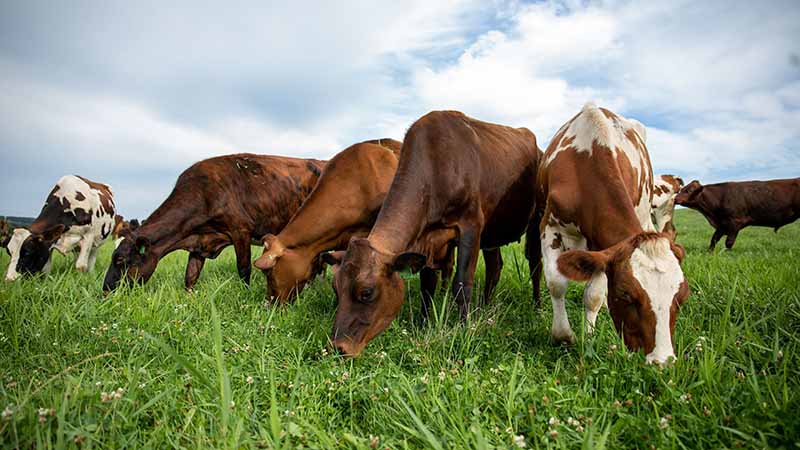Nearly 20 years ago, a group of scientists in Wisconsin knew all too well from their research that climate change was impacting natural resources, communities, and the built environment throughout the state. Yet, they saw little urgency among decision-makers to make Wisconsin more climate resilient.
In 2007, a very promising thing happened. The Wisconsin Initiative on Climate Change Impacts (WICCI) formed as a partnership between UW–Madison’s Nelson Institute for Environmental Studies and the Wisconsin Department of Natural Resources and created working groups to evaluate Wisconsin’s changing climate. WICCI published its first climate assessment report in 2011.

Fast forward to 2020. After a period of transition, the group was revived with new leadership and expanded its working groups. While continuing to be a voluntary effort, a donation to the Natural Resources Foundation of Wisconsin allowed the group to con-tribute ideas to the Governor’s Task Force on Climate Change and publish an updated “2021 Assessment Report: Wisconsin’s Changing Climate,” targeting decision-makers and featuring stories of climate impacts.
In the 10 years since the 2011 report, new data show continued warming, increases in rain and snow, and more frequent extreme events. The last two decades have been the warmest on record, and the past decade has been the wettest. By mid-century, the report projects Wisconsin will be about four to six degrees warmer on average com-pared to our baseline climate conditions at the end of the 20th century (our recent past). Each additional degree of warming will intensify the climate impacts experienced in Wisconsin, detailed in this series. An education grant from the Wisconsin Coastal Management Program enabled WICCI to expand outreach about the report, leading to new collaborations and climate information distributed to venues reaching over 430,000 stakeholders.
Next steps for WICCI are to publish an updated report in 2026. WICCI is also continuing to foster climate solutions by researching better geospatial data integration, assessing climate migration, identifying climate-sensitive agricultural practices, collaborating on standards to help the built environment withstand a wetter environment, and promoting practices to help native plants, wildlife, and natural communities adapt to the rapidly changing climate. WICCI’s efforts underscore calls for accelerating actions to reduce greenhouse gas emissions to reduce the worst consequences of climate change. There is hope for the future, but it’s up to us.
Support WICCI
The Wisconsin Initiative on Climate Change Impacts (WICCI) is a statewide collaboration of scientists and stakeholders formed as a partnership between UW–Madison’s Nelson Institute for Environmental Studies and the Wisconsin Department of Natural Resources. WICCI’s goals are to evaluate climate change impacts on Wisconsin and foster solutions. Gifts to the WICCI Program Fund provide general, discretionary program support and enhance and expand WICCI’s teaching, research, and public service roles. Gifts also support partnership-building activities, including faculty, staff, and student recruitment, retention, and morale.